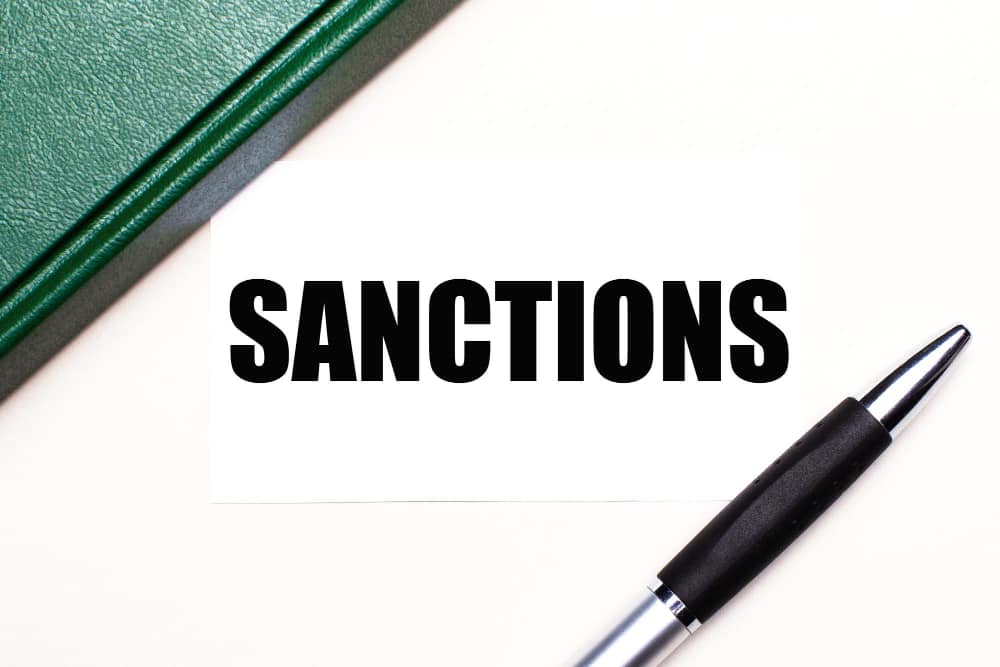Introduction
Tax sanctions and foreign policy are instruments used by governments and non-governmental organisations in international affairs to sway or penalise other states or non-state entities. Sanctions are typical of an economic character, but they may also bear the possibility of diplomatic or military repercussions. Tax sanctions and foreign policy can be unilateral, which means they are only applied by one nation, or bilateral, which means a collection of countries (such as a trade group) is enforcing the sanctions.
Governments and transnational organisations implement tax sanctions and foreign policy to influence the strategic choices made by state and non-state players that jeopardise their interests or go against global standards of conduct. While supporters claim sanctions have improved recently and will continue to be a crucial weapon in foreign policy, critics claim they are frequently ill-conceived and rarely effective in altering a target’s behaviour.
Nevertheless, the Western reaction to several geopolitical challenges, such as North Korea’s nuclear program and Russia’s involvement in Ukraine, has been characterised by sanctions. US sanctions have been applied and intensified against enemies in Iran, Russia, Syria, and Venezuela in recent years as the country has increased their use. This article provides some basic knowledge on tax sanctions and foreign policy in general, and US sanctions in particular.
What are tax sanctions?
An economic or tax sanction removes average trade and financial ties for foreign and security policy objectives. In other words, sanctions are a form of non-military foreign policy used by the United States and others to affect the conduct of other nations. Sanctions are “a lower-cost, lower-risk, middle course of action between diplomacy and war,” according to the Council on Foreign Relations. Tax sanctions are the method, and money is the middle path.
Sanctions can be targeted, preventing deals by and with specific companies, organisations, or people. They are often comprehensive, banning economic activity concerning an entire nation, like the long-standing United States embargo on Cuba.
Tax sanctions and foreign policy frequently relate to treaties or other international deals. They might include import restrictions against a nation that doesn’t abide by established international trade sanctions or the removal of special treatment like Most Favored Nation status.
Economic sanctions can isolate a country for political or strategic purposes. The United States has imposed severe economic sanctions against North Korea in response to that nation’s efforts to develop nuclear weapons. For example, the US does not maintain diplomatic relations, either.
Economic sanctions include travel bans, asset freezes, arms embargoes, capital restraints, foreign aid reductions, and trade restrictions.
Some of the most common punitive financial measures include:
Tariffs: Increases on imported products frequently applied to support local markets and businesses.
Quotas: Limits on the number of products that may be received or transferred are known as quotas.
Embargoes: Limitations or halts to trading with a country or group of countries. These may include restrictions on or outright bans on international travel.
Non-tariff barriers: These are intended to increase imported products’ prices by enforcing demanding regulatory requirements.
Asset seizure/freeze: Taking possession of or hanging onto a country’s or individual’s financial assets or stopping them from being sold or moved.
As of March 2022, the Treasury Department had 37 restriction programs on its roster, one of which was a 1962-era program against Cuba. Most often, sanctions come in the form of a set of limitations. The programs result from presidential orders, laws, or other government initiatives to target particular problems or behaviours.
For instance, the United States has maintained sanctions against Iran since 1979. After the prisoner situation in Iran that year, that initiative started. Since then, it has changed to urge Iran to give up on developing a nuclear armament program.
Outbound and Inbound Sanctions
Tax sanctions mainly cover two categories of rules – tax sanctions imposed on US persons who transact with the foreign target and tax sanctions imposed on foreign persons and entities for income connected to the US. They are known as outbound tax sanctions and inbound tax sanctions, respectively.
In outbound tax sanctions, even though the aim is to change the behaviour of the foreign target, the rule applies to US persons as well. Therefore, the burden placed by the tax sanction on US shareholders is used as an indirect way of burdening the target country. These kinds of sanctions are helpful in long-term strategies and are more effective when the price effect is large.
In inbound tax sanctions, the sanctions are applicable to persons and entities having a US business or who receive payments of US investment income. These sanctions are aimed at imposing economic hardship on the target country. Hence, they work best when the price effect is small (when it is very costly for the foreign target to substitute alternatives to the income subject to tax).
It is the nature and aim of the sanctions that determine the kind of sanctions that are imposed by a country.
When are sanctions used?
National governments and international organisations have implemented tax sanctions and foreign policies like the United Nations and the European Union to coerce, dissuade, penalise, or defame entities that imperil their interests or transgress international standards of conduct. Sanctions are used to achieve various foreign policy objectives, such as conflict settlement, counterterrorism, drug prohibition, non-proliferation, freedom and human rights advancement, and cybersecurity.
Although they are a type of intervention, financial sanctions may be used to react to international crises where military involvement is impractical or the national interest is less important. On occasion, leaders have imposed penalties while weighing more severe punishment. For instance, four days after Saddam Hussein invaded Kuwait in August 1990, the UN Security Council passed extensive penalties against Iraq. It took several months before the UN Security Council approved using armed action.
Sanctions process in the United States
Economic and financial sanctions are more often used by the US in comparison to any other country. The process commences by issuing an executive order (EO) by the President, which declares a national emergency in response to an “unusual and extraordinary” foreign threat. Through this, the President obtains special powers to regulate the actions taken against the threat for 1 year unless the President further extends the same in the following year or the special powers are terminated by a joint resolution of Congress. It is also possible to modify the sanctions through executive orders.
It is also possible for Congress to pass legislation imposing new or modifying the existing sanctions, which has been done in many previous cases. Considering that both the President and the Congress hold the same powers, there exist possibilities of clashes. For example, in 2017, President Trump had to reluctantly sign the bill passed by Congress to impose new sanctions on Russia for interfering in the previous US presidential elections. This bill also placed limits on Trump’s ability to lift Russian sanctions.
The existing US sanctions programs are administered under the Treasury Department’s Office of Foreign Assets Control (OFAC) and other departments such as the State Commerce, Homeland Security, and Justice. Therefore, it is possible for the secretary of state to designate a group as a foreign terrorist organization or label a country as a sponsor of terrorism.
How the 9/11 attacks changed sanctions policy?
After the 9/11 attacks, the US government aimed to disrupt the financial infrastructure supporting terrorists and international criminals. To implement this, President George Bush, on 23rd September 2001, signed EO 13224, which gave the Treasury Department the authority to freeze assets and financial transactions of individuals and entities suspected of supporting terrorism. This was followed by Bush giving Treasury broad powers under Section 311 of the USA Patriot Act to designate foreign financial institutions and jurisdictions as “primary money laundering concerns.”
These measures can be said to have reshaped the financial regulatory environment, considering that they greatly raised the risks for banks and other institutions that were engaged in suspicious activities. Sanction violations were capable of resulting in huge penalties as well as reputational loss, examples of which have been seen in recent years as well. The largest penalty in history was experienced by France’s largest lender, BNP Paribas, who in 2014 pleaded guilty to processing billions of dollars for blacklisted Cuban, Iranian, and Sudanese entities.
Which parts of the US government are involved in the sanction policy?
The United States employs economic and financial sanctions more than any other nation. The legislative body or the executive department may be the source of sanctions legislation. Administrative directives, laws, and occasionally United Nations Security Council measures are the sources of US sanctions.
The sanctioning procedure involves several government agencies.
Presidents typically launch the process by issuing an executive order that declares a national emergency in response to an “unusual and extraordinary” foreign threat, for example, “the proliferation of nuclear, biological, and chemical weapons” or “the actions and policies of the Government of the Russian Federation for Ukraine”. For a year, unless extended by the president or terminated by a joint vote of Congress, this gives the president unique authority to control trade in response to that threat.
The State Department creates sanctions policy by enlisting foreign assistance and collaborating with the departments’ organisations that are responsible for carrying out the sanctions. Most sanction programs are administered and enforced by the Treasury Department’s Office of Foreign Assets Control, imposing financial fines on offenders. This organisation distributes a roster of sanctioned individuals, groups, and businesses that is frequently revised. Additionally, the government posts program additions, updates, and deletions. OFAC regularly adds (and removes) names from its database of over 6,000 people, companies, and organisations.
The named individuals’ assets are frozen, and US citizens – including US corporations and their overseas subsidiaries – are prohibited from doing business with them. Under President Trump, the Office of Foreign Assets Control has named some influential people and enterprises with political ties in Cuba, Myanmar, Nicaragua, and Venezuela. Additionally, the agency recently made headlines for deleting some businesses owned by Russian billionaires from the SDN list.
A section of the Department of Commerce carries out trade export bans in collaboration with the Departments of State, Defense, and Energy. These nations, including Cuba, Iraq, North Korea, Russia, Belarus, Iran, and Syria, are subject to export limitation laws set forth by the Bureau of Industry and Security.
The Department of Defense, which limits weapons sales, and the Department of Justice, which pursues criminal sanctions-related cases, are different agencies that enforce US sanctions.
On penalties policy, the two departments occasionally disagree. For instance, a measure imposing additional penalties on Russia for meddling in the 2016 US presidential election was approved by Congress in July 2017. President Donald J. Trump reluctantly signed it. With veto-proof majorities, the measure was approved despite its contentious restrictions on Trump’s ability to remove the sanctions against Russia.
Current US sanctions
The targets and extent of sanctions differ. Most of the Treasury Department’s sanctions lists explicitly mention particular countries or geographic areas, such as Cuba, North Korea, and Iran. Other sanctions regimes focus on specific problems, like terrorism, electoral security, and cybercrime.
The US moves against Russia are one of the more recent punishment initiatives in the news.
In reaction to Russia’s attack and annexation of Ukraine’s Crimea area in 2014, President Obama signed an executive order stating a national emergency. It established a sanctions program that hit Russia’s financial, energy, and military sectors while forbidding trade with Crimea, along with later executive orders. Under President Donald Trump, the sanctions policy continued to be in effect.
A new sanctions program was launched in April 2021 in response to “harmful foreign activities of the Government of the Russian Federation,” per President Joe Biden’s subsequent executive order. The US extended that executive order to target several dozen individuals, groups, businesses, government entities, and luxury vessels after Russia invaded Ukraine in February 2022. Vladimir Putin, the president of Russia, was one of those attacked.
How are sanctions enforced?
Any person, group, or business with a foothold in the US that violates the terms of sanctions regulations may be penalised. A section of the Treasury Department imposes penalties to punish offenders.
The organisation has imposed $6.5 billion in fines since 2008 due to 357 breaches. These fines are typically imposed following a compromise. The most considerable punishment, $1.1 billion, was charged to BNP Paribas, a French bank with offices in the US, for processing deals with people in Sudan, Iran, Cuba, and Burma who were subject to sanctions.
Non-economic factors often determine the outcome of sanctions
Unlike popular opinion, economic factors do not primarily determine the economic damage inflicted on a country. Rather, it has been argued that sanctions work best when strong internal political opposition to the target government exists. Through significant political opposition, the threat of severe measures often causes the opposition to pressurize the target government and accede to the wishes of the sanctioning nation. For instance, when multilateral sanctions were imposed against South Africa, it was the fear of moderate economic effects among the liberal white businessmen which helped create reform pressures on the South African government.
In addition to political opposition, international cooperation is further helpful in enhancing the political legitimacy of the sanctions and inflicting greater isolation on the target nation. However, sanctions can be counterproductive if they are so severe that the target nation seeks to increase its ties with the adversaries of the sanctioning nation.
Do financial sanctions work?
Advantages of economic sanctions
According to many academics and professionals, specially tailored sanctions can be at least partially effective and should be kept in the toolkits of foreign policy decision-makers. Sanctions assessments ought to take into account the following:
- Each historical situation has a very different dynamic. Various variables can cause sanctions to succeed in one case but fail in another. Generally speaking, sanctions programs with modest political goals have a higher chance of success than those with more ambitious goals. Sanctions may also have the intended fiscal impact without changing behaviour. In 2000 and 2001, UN sanctions on Afghanistan took a severe toll, but they could not convince the Taliban government to hand over Osama bin Laden.
- Over time, sanctions regulations frequently change. The American policy toward Iran is a prime example of this. Since American captives were taken in 1979, Washington has imposed restrictions on Tehran, except for a short time in the 1980s. However, these actions’ intent and justification have undergone a significant shift.
- It is only possible to identify patterns, not causative connections. For instance, many think that the 2003 UN sanctions against Liberia contributed to the overthrow of the Charles Taylor regime. Still, many other national and global variables may have been impacted more significantly.
What counts, not just whether penalties have succeeded in their goal, is their relative usefulness. US – EU sanctions against Russia may not have resolved the situation in Ukraine, but other options, such as inaction, may have had a worse outcome. In some cases, penalties are only used to show contempt.
Disadvantages of economic sanctions
Meanwhile, authorities point to several best practices for creating a penalty policy:
- Create a balanced strategy. Effective strategies frequently combine negative inducements like financial assistance with positive ones like sanctions and the fear of military action. Some observers use the American and its allies’ Libya policy from the late 1990s and the beginning of the 2000s as an excellent illustration.
- Set achievable objectives. Sanctions intended to topple the target government or give it few options besides what it sees as political suicide are likely to fail. Specialists often use the US blockade on the Castro government as a lesson.
- Develop international cooperation. The more nations that support and implement penalties, the better, mainly when the target is a diverse economy. Without multilateral backing, sanctions against the apartheid government in South Africa in the 1980s, Saddam Hussein’s Iraq in the 1990s, or Iran and Russia today would not be nearly as effective.
- Be trustworthy and adaptable. The victim must think their actions will result in increased or decreased penalties. In response to significant political changes in Myanmar, the Obama administration loosened some financial and business restrictions in 2012. In 2016, the sanctions scheme concluded. However, in this instance, Myanmar’s leaders quickly escalated the mistreatment of their nation’s Rohingya population, and the United States reinstated sanctions in early 2019.
Looking ahead, some experts caution that sanctions should be seen as a double-edged weapon, one that can assist the United States in achieving policy objectives in the near term but, if used carelessly, may jeopardise the nation’s financial power over time.
Conclusion
Tax penalties are still crucial in the US’s foreign policy arsenal. The laws and rules governing US sanctions have grown more complicated and are subject to sudden changes in reaction to global events and shifting national security priorities. Given the continuing rapid pace of change in the US sanctions landscape, it is now more critical than ever for companies – both US and non-US – to understand various types of US sanctions and their potential influence on the global matrix of business risks, as well as to stay abreast of critical developments so that they can nimbly anticipate and prepare their business to respond to emergent US sanctions risks and compliance challenges.
If you, as an individual or your business, have been facing issues with the sanctions imposed by the United States, LegaMart team of experienced lawyers is here to help you with all your queries and to ensure legal compliance. You can learn about LegaMart services on our homepage.
Frequently Asked Questions (FAQs)
How to find the list of all persons and entities subject to sanctions?
The list of all persons and entities subject to sanctions is either annexed to each regulation governing the sanctions or uploaded on the official website of the sanctioning country. For instance, the list of all persons and entities subject to sanctions by the US can be found on the official website of the Treasury Department.
What should be done if a financial institution discovers an account belonging to a designated person or entity?
If the account details match the identification details of the person or entity, the financial institution is expected to immediately freeze the funds (i.e., prevent access to the funds) and notify the same to relevant authorities.
Lastly, foreign policy plays a pivotal role in shaping immigration policies by fostering convenient travel conditions to enhance relationships between allied nations. If you are a turkish citizen and wants to immigrate, then immigrating to countries like Norway and Portugal which have good relations as well policies in consonance with your countries foriegn policy, can help you with immigration as well as your stay there.




